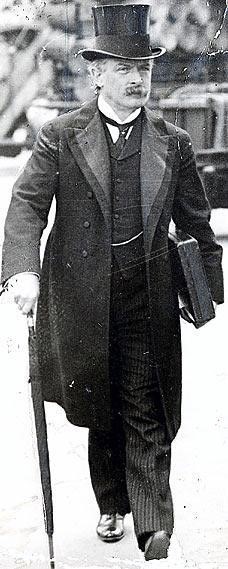Anniversary of bomb plot against Lloyd George
It is worth recalling on the day that protesters have been arrested for breaching security at the Palace of Westminster and yesterday’s news was full of British men being found guilty of participating in camps for terrorists, that violence has been a permanent feature of British political life.
The only British prime minister to be assassinated (although many may have deserved it and Thatcher came close to being killed in 1984) was Spencer Perceval but that was as long ago as 1812. Who says politics was more civilised in the old days? And there have been countless examples of political violence down the years from the Peterloo massacre to the street clashes of the British Union of Fascists and the civil disturbances of Thatcher’s Britain.
In 1881 delegates to an anarchist conference in London openly discussed the violent overthrow of the state and broke up into workshops to learn how to make bombs. The so-called ‘troubles’ in Northern Ireland since 1968 were an everyday intrusion of violence in the province and the mainland and sometimes spilled over into the Republic too.
On this day in 1913 then Mrs Emmeline Pankhurst, whose statute now stands close to the Houses of Parliament, went on trial for a bomb attack at the home of David Lloyd George. A house being built for LG at Walton Heath was blown up. Not all the explosives detonated but it is reckoned that if they had some workmen on the site would have been killed. LG himself was not in danger because he was out of the country. Mrs Pankhurst was sentenced to three years penal servitude. One of the main perpetrators of the attack was Emily Widling Davison who remained at large but died later that year under the hooves of the King’s horse at the Epsom Derby.
Violent activity seems as endemic to British political life as democratic activity.
